 WHY IS EVERYTHING BETTER IN ITALIAN?
WHY IS EVERYTHING BETTER IN ITALIAN?
by Carol Sudhalter
In the early afternoon of Jan.20, 2011, my last full day of a five-week tour of Italy that had begun on Christmas 2010, I was sitting in the Milan Stazione Centrale, waiting for my 1:30 pm train to Rome. The ticket, a ‘promozione‘ offer that I had purchased for 19 euros, read ‘Milano-Bari’; I’d assumed it would stop in Rome, where I was scheduled to play at The Bebop that night. With a large suitcase, tenor sax, knapsack and trolley, I couldn’t move around the station very well; but at 1:10 pm I managed to make my way over to the information booth to ask at which track I was likely to find my train. Track 17, he said; and I answered, in Italian, “Thank you. And, oh, it does stop in Rome, doesn’t it?” Staring in disbelief, he exclaimed, “Are you kidding? It goes by the Adriatic Coast route!”
This surprising news obliged me to caravan my multitudinous luggage down to the lower level and spend another $100 on a “real” ticket: a fast train, or Frecciarossa, due to leave at 2 pm. All I could feel was gratitude. I spoke the language, I had thought to ask, and I was able to understand the answer. Had I ended up in Ancona, Urbino, Bari or anywhere else along the splendid Adriatic, I would have been hard put to get back to Rome, would have missed a most wonderful final gig, and possibly my flight home!
At that moment, the good fortune of knowing the language struck me like thunder.
Italian had come to me without difficulty back in 1966 when I first arrived in Milan to audition for flute study under flautist/conductor Bruno Martinotti. Over school and college years I had studied Hebrew, Latin, French, and Spanish. Italians, among the most cordial of all peoples, helped me with the language, each new friend adding a few words to my vocabulary or giving me a pronunciation lesson. Even the barista at the Caffe’ Motta downstairs from my apartment offered daily pungent phrases in Milanese dialect, obliging me to repeat them until they were just as perfect as the espresso he served. At night, I would curl up in bed with a Berlitz phrase book, searching for the phrases I had heard that day.
After 1970 came a long period of over 30 years, when I didn’t have occasion to return to Italy. I didn’t forget the beautiful sound of my favorite language. When I finally did return, in 2002, it was with a surprisingly full and exciting schedule of engagements, thanks to email exchanges I had had in Italian, through which I planned my own tour. Since then, I’ve managed to tour and play twice a year, in clubs and festivals throughout Italy, and even picking up engagements in UK, Switzerland and a wedding in Paris that lasted a good two days.
My recent December-January trip, though, felt to me like one of the best. It began in the South, in the “heel of the boot,” Puglia, with concerts in Taranto, Ceglie Messapica; and Bari. In the latter, a fine tribute to Cole Porter and Gershwin, fronting, along with vocalist Madame Pat Tandy of Newark, NJ, Paolo Lepore’s Jazz Studio Orchestra, the Hilton Hotel ballroom offering a warmly responsive audience. New Year’s Eve was a long night of jazz, blues and, after midnight, non-stop R&B at PiazzaRoma, Taranto. That night I was stupefied as usual (or a little more than usual) by the non-stop writhing energy of Madame Pat Tandy, with whom I work frequently in New York in a marvelous five-piece all-women ensemble with organ, drums, harmonica. At sunrise on New Year’s Day, Tandy, drummer Francesco Lomagistro, Hammond organist Vito Di Modugno, both from Puglia, and I traveled to Locarno, Switzerland, where we played the Premiere Edition of Nicolas Gilliet’s winter jazz festival, “Locarno on Ice.” After three crisp, sunny, cold, magical Swiss days, I bid farewell to my bandmates and proceeded on my own to Rome, Pisa, Florence, Milan, Como, Brescia, Cuneo, and Milano, to play with a host of different bands and musicians, some known to me, others entirely new, all extremely high caliber.
Perhaps, though, what made the trip so delightful was the chance to give a master class I’d thought up some years ago: “English Diction for Singers.” Jazz singers everywhere seem anxious to sing in English, but without the kind of language training opera singers receive, it never quite sits right, to my ears. Schools that initially had turned me down for this class now welcomed me. The class is at once fun, funny and enlightening. For example, a student had chosen to sing “My Heart Belongs to Daddy,” but left me cold with her first line. On a hunch, I questioned her on the meaning of “I might make a play for the caddy.” Sure enough! She’d missed it. Discovering that it did not mean she was going to play a round of golf with the caddy, she used her natural theatricality and the whole rendition took on a great, Hepburn-like flare. And we all had a good chuckle.
Being able to present the course in Italian is a plus. That is part of the work-practical side of knowing the language. Sheila Jordan’s words of wisdom come to mind: in a recent lecture I attended, she said, “When you travel, you’d just better have your body language together, because your bands sure as hell won’t know how you want to end the tunes or where to play behind you if you can explain it only in English!” Sheila, a master of body language, charades, physical expression and voice, is probably as comfortable in East Oshkosh as in France or Italy or New York. If I ever travel to the far corners of the earth, I will heed her words well. For now, I’m having great fun with the verbal side of travel.
Knowing Italian holds many other perks for me. For instance, I find occasional employment as a translator. In 2003, JazzAscona Festival asked me to join their press office staff. I had my own little column, for which I interviewed various musicians on the festival roster; and I translated articles from Italian to English. In Ticino (where Ascona lies neatly on Lago Maggiore) everyone seems to slip effortlessly from German to French to Italian and English, making it almost imperative for the newspapers to publish in multilingual format. Our press office staff had to reflect that variety. That exciting job lasted two seasons for me, and as a plus, got a chance to play and talk on Swiss jazz radio for show host Giuliano Fournier; to play a set with Jason Marsalis’ quartet, and with celebrities Rhoda Scott, Henry Butler and more. Just by being on the scene, opportunities kept on cropping up.
More translation opportunities have followed: in 2010 I was hired to translate a manuscript, recently published as Roberto Corazzi’s lovely book, I Segreti della Cupola/The Secrets of the Dome (Pontecorboli, Florence, March 2011), about the incredible constructive techniques of the Dome of the ‘Santa Maria del Fiore’ Cathedral in Florence, built by Brunelleschi in the 1440s.
More on Italian: how pleased and amused the audience is when I start the evening’s concert announcements and greetings in a kind of satirical English, stumbling over band members’ last names; then after ten minutes or so, as though from some ethereal source of inspiration, suddenly break into Italian!
But beyond all of these rational reasons why it’s good to speak Italian, there is to me something so exciting and feverish about hearing the sounds of a foreign language. For others, Italy would mean great food. Still others would say the art compares with that of no other country. I’ve never enjoyed vacations per se, never had a gourmet appetite. What enchants me is the constant diet of new sounds and figures of speech. Being surrounded by new, wonderful sounds and having the privilege of being able to devour them.
Back in New York, granted, music is a rewarding career. There are the myriad big bands (“rehearsal bands”); the great clubs; the fabulous musicians one gets to hear and even play alongside. Trips to other states and cities. Return trips to my alma mater, Smith College, one with Madame Pat’s all-women quintet, and another to play at my 45th reunion, were special moments for which I waited decades. The night, 31 years ago, when I walked on stage at Madison Square Garden with Latin Fever, the first-ever all-women Latin band, and faced an audience of 10,000 cheering salsa fans. These are everyday events for some players, but for me they are incomparable, unforgettable moments. Yet, my first hearing of the word “suocera” (mother-in-law!) or ‘gomito‘ (elbow), hold much weight in my memory heart, right along with special moments like playing a set with Rockin’ Dopsie at Umbria jazz, or a concert at Aulia Giulio Cesare, Campidoglio (Rome), publicized in every newspaper in town.
My next trip comes up in September. I will stay six weeks, and the calendar’s already starting to fill up. For the first time in my life, I’ll be able to see the renowned isle of Sardinia, where, like the sailor with a girl in every port, I’ll once again play with a brand new band. A wedding in Rome, and concerts and classes in Florence, Milan, Verona, Cuneo, Brescia, and Venice are on the agenda, too. I guess, I hope, and I trust, that Italy is down as a regular part of my future.

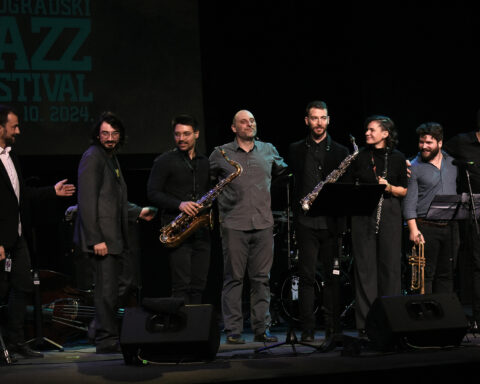
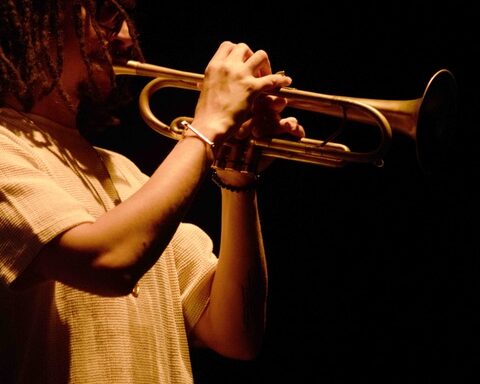
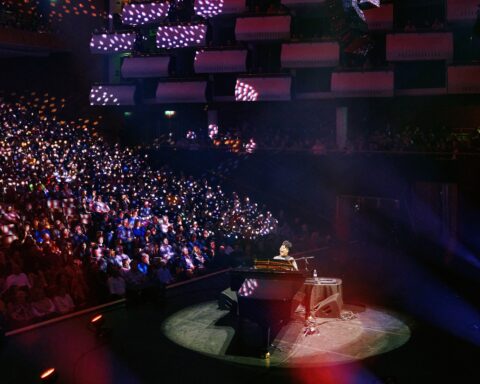
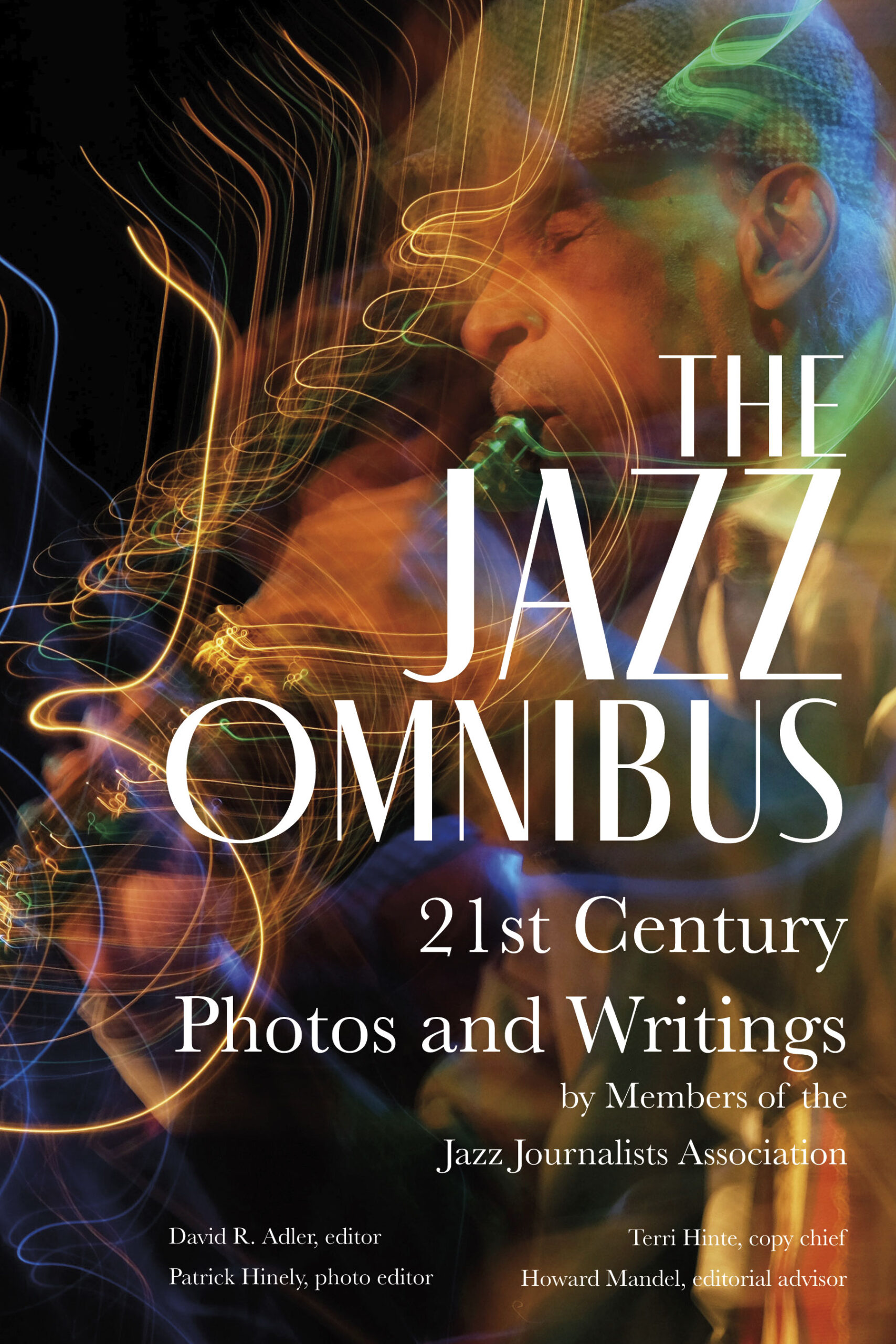
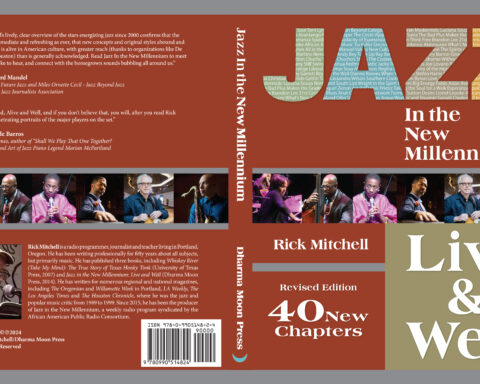
Congratulations Carol, A great story and so well put together.
Best wishes from Alex Hutchinson Australia " Downunder "
A great read, for both content and style. Guess writing skill runs in the family!
I WISH writing skills were a family gene! It takes me weeks and weeks to write something I like. Rich was so fast and his brain retained all the facts. I possess neither of those qualities...your compliment was most heartwarming!!!